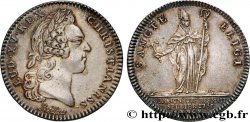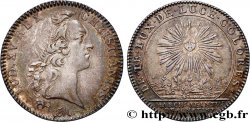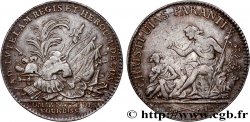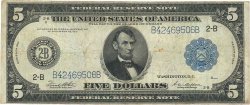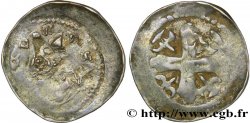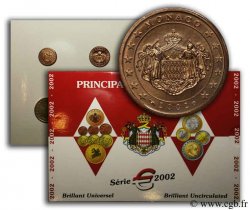fjt_05869 - CORPORATIONS LES SIX CORPS DES MARCHANDS 1725
Not available.
Item sold on our e-shop (2010)
Price : 380.00 €
Item sold on our e-shop (2010)
Price : 380.00 €
Type : LES SIX CORPS DES MARCHANDS
Date: 1725
Metal : silver
Diameter : 32 mm
Orientation dies : 6 h.
Edge : cannelée
Rarity : R2
Catalogue references :
Obverse
Obverse legend : LUD. XV. REX. CHRISTIANISS.
Obverse description : Buste de Louis XV signé M [n° 327 var] , buste inédit au Géant-Prieur, variante du type 598, dorénavant affecté du I donc 598I.
Obverse translation : Louis XV, roi très chrétien.
Reverse
Reverse legend : VINCIT. CONCORDIA. FRATRUM ; À L'EXERGUE : LES. SIX. CORPS. DES. MARCHANDS. 1725.
Reverse description : Hercule tentant de briser un faisceau.
Reverse translation : La concorde entre frères est victorieuse.
Commentary
Le buste est inédit et probablement spécifique à ce jeton.
Mes six corps sont 1. Draperie Mercerie. 2. Epicerie. 3. Bonneterie, Pelleterie, Chapellerie. 4. Orfèvrerie, Batteurs d'Or, Tireurs d'Or. 5. Fabricants d'étoffes, tissutiers-rubanniers. 6. Marchands de Vin. Ce type de revers symbolisant l'Unité sera repris pour la fabrication des monnerons révolutionnaires.
The bust is unpublished and probably specific to this token. My six bodies are 1. Drapery Haberdashery. 2. Grocery. 3. Hosiery, Furriery, Hattery. 4. Goldsmith, Gold Beaters, Gold Drawers. 5. Fabric Manufacturers, Ribbon Weavers. 6. Wine Merchants. This type of reverse symbolizing Unity will be used for the manufacture of revolutionary coins.
Mes six corps sont 1. Draperie Mercerie. 2. Epicerie. 3. Bonneterie, Pelleterie, Chapellerie. 4. Orfèvrerie, Batteurs d'Or, Tireurs d'Or. 5. Fabricants d'étoffes, tissutiers-rubanniers. 6. Marchands de Vin. Ce type de revers symbolisant l'Unité sera repris pour la fabrication des monnerons révolutionnaires.
The bust is unpublished and probably specific to this token. My six bodies are 1. Drapery Haberdashery. 2. Grocery. 3. Hosiery, Furriery, Hattery. 4. Goldsmith, Gold Beaters, Gold Drawers. 5. Fabric Manufacturers, Ribbon Weavers. 6. Wine Merchants. This type of reverse symbolizing Unity will be used for the manufacture of revolutionary coins.








 Report a mistake
Report a mistake Print the page
Print the page Share my selection
Share my selection Ask a question
Ask a question Consign / sell
Consign / sell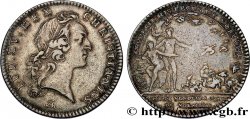
 Full data
Full data
